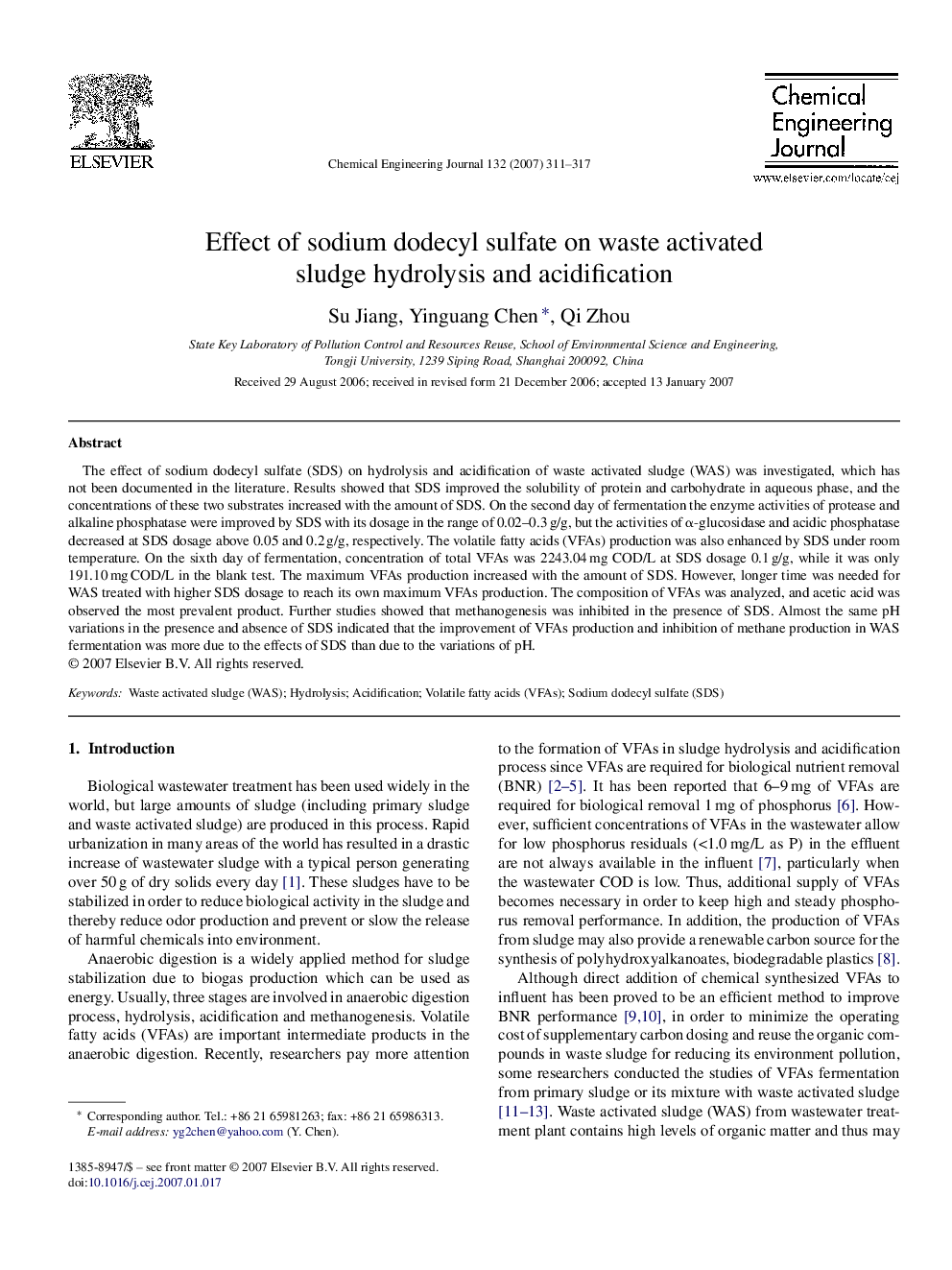| Article ID | Journal | Published Year | Pages | File Type |
|---|---|---|---|---|
| 153784 | Chemical Engineering Journal | 2007 | 7 Pages |
The effect of sodium dodecyl sulfate (SDS) on hydrolysis and acidification of waste activated sludge (WAS) was investigated, which has not been documented in the literature. Results showed that SDS improved the solubility of protein and carbohydrate in aqueous phase, and the concentrations of these two substrates increased with the amount of SDS. On the second day of fermentation the enzyme activities of protease and alkaline phosphatase were improved by SDS with its dosage in the range of 0.02–0.3 g/g, but the activities of α-glucosidase and acidic phosphatase decreased at SDS dosage above 0.05 and 0.2 g/g, respectively. The volatile fatty acids (VFAs) production was also enhanced by SDS under room temperature. On the sixth day of fermentation, concentration of total VFAs was 2243.04 mg COD/L at SDS dosage 0.1 g/g, while it was only 191.10 mg COD/L in the blank test. The maximum VFAs production increased with the amount of SDS. However, longer time was needed for WAS treated with higher SDS dosage to reach its own maximum VFAs production. The composition of VFAs was analyzed, and acetic acid was observed the most prevalent product. Further studies showed that methanogenesis was inhibited in the presence of SDS. Almost the same pH variations in the presence and absence of SDS indicated that the improvement of VFAs production and inhibition of methane production in WAS fermentation was more due to the effects of SDS than due to the variations of pH.
